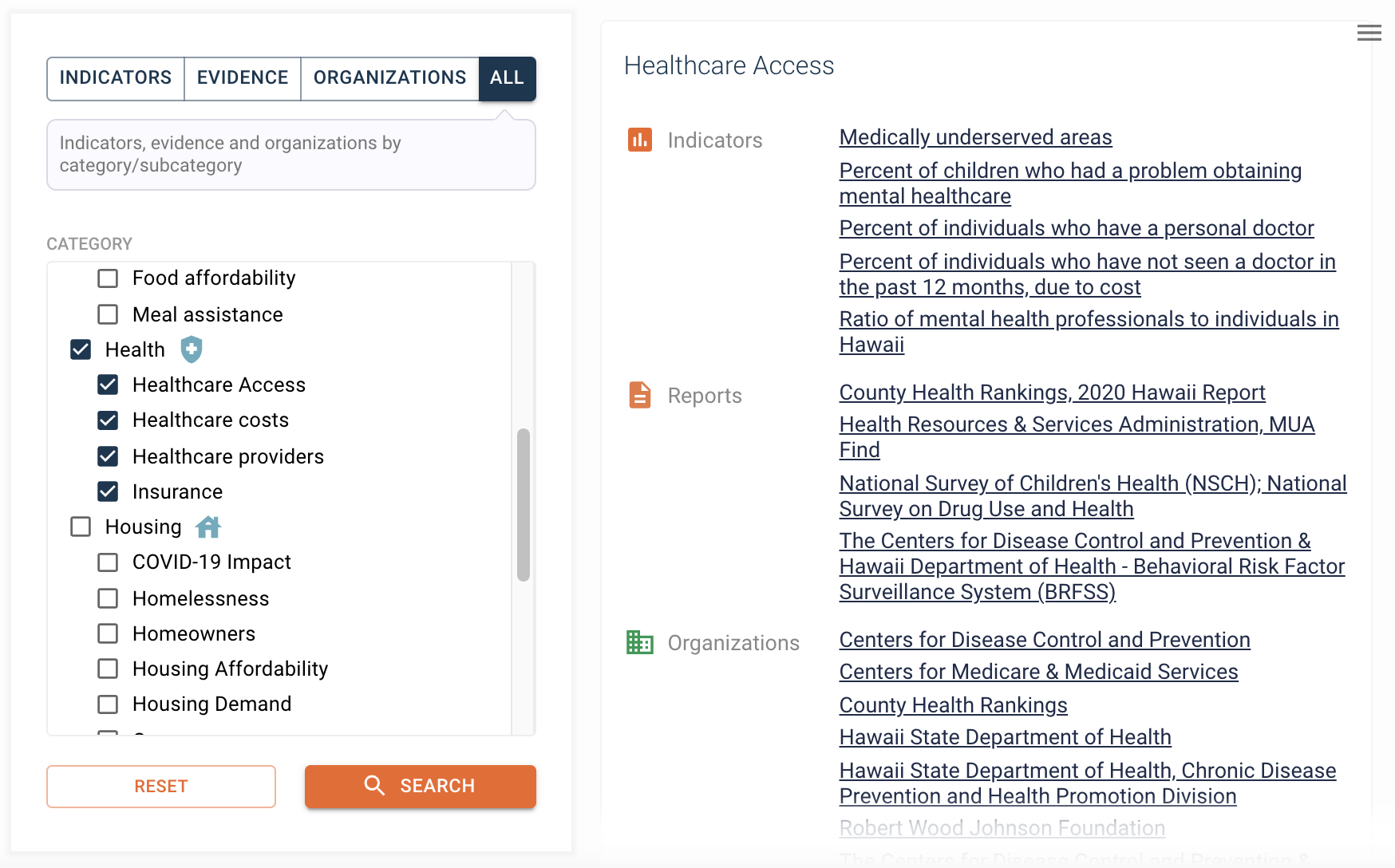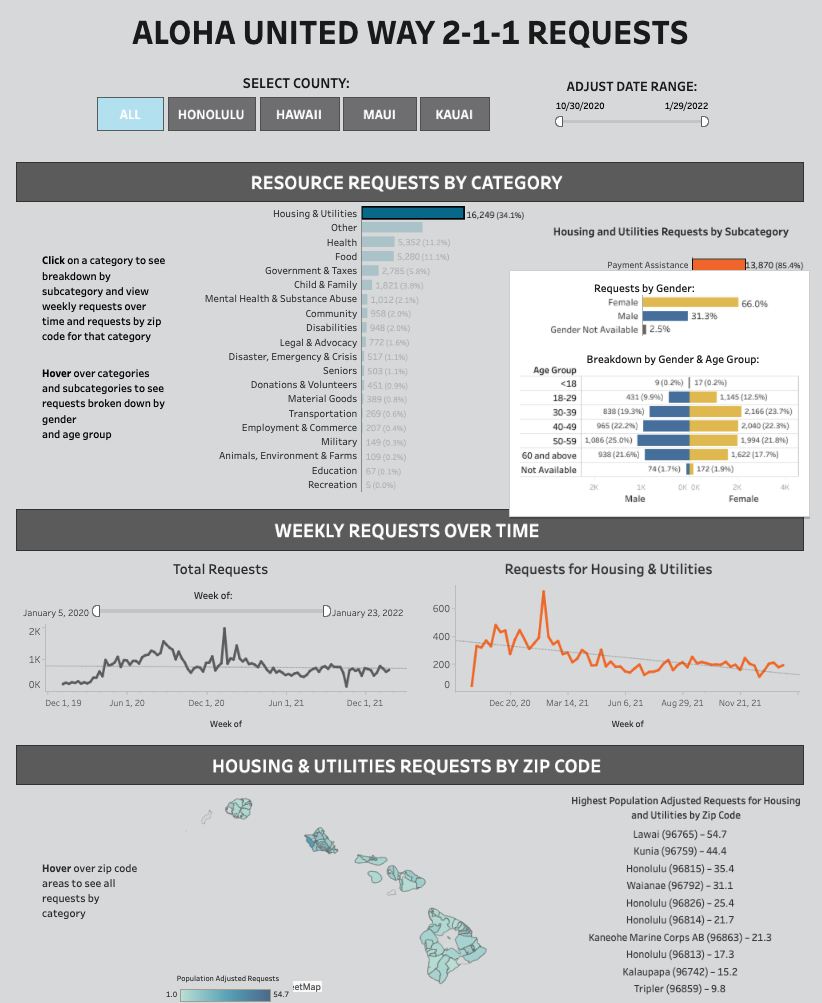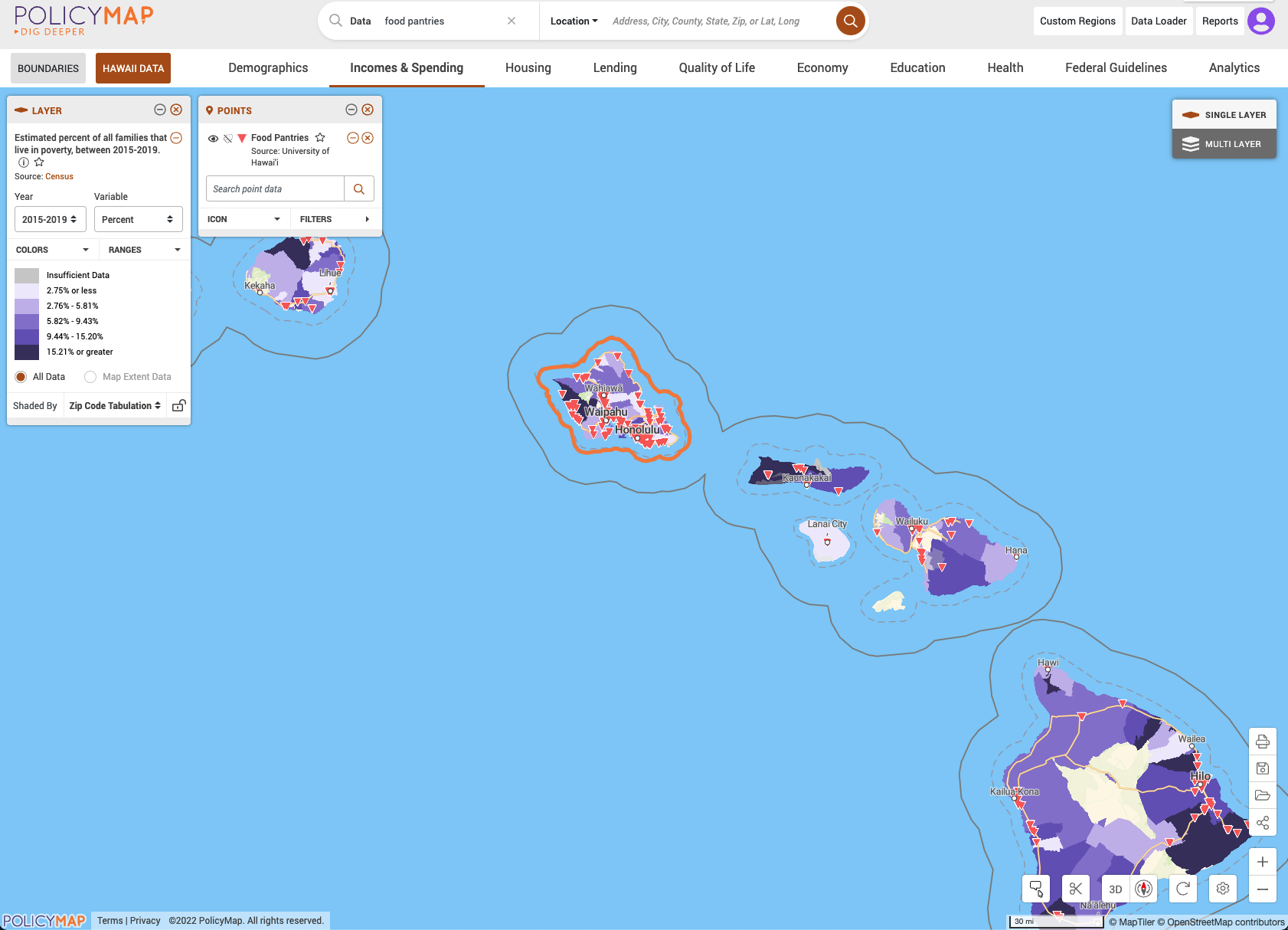Understanding Household Need: Our Data Support Tools & Resources
At the Hawai‘i Data Collaborative, one of our core priorities is improving data accessibility. As our state works to recover from the far-reaching economic impacts of the COVID pandemic, those working to support Hawai‘i’s households in need of assistance, need access to timely, relevant data now more than ever.
Recognizing this need, we have developed a suite of tools and resources that make relevant data more accessible to communities, non-profits, policymakers and others working to support households struggling to get by.
Hawaii Data Explorer - Centralizing and Contextualizing Data
Data in Hawai‘i is hosted in numerous places that may not be easy to find, and Google searches often do not point us in the right direction. We developed the Hawai‘i Data Explorer to serve as a tool for connecting users to publicly available data related to household well-being in Hawai‘i.
Designed to support various levels of information-seeking, the Hawai‘i Data Explorer accommodates targeted questions (e.g., What is the percentage of Hawai‘i residents who are uninsured?), broader questions of a specific category (e.g., What data are available related to health insurance in Hawai‘i?), as well as general curiosities around a certain domain (e.g., health in Hawai‘i). Searches can also be further refined based on data collection frequency and availability by age, gender, and race.
What separates Hawai‘i Data Explorer apart from other data directories is the visibility of the context in which the data is situated – which is critical when using data, yet often overlooked. Understanding when data was collected, why data was collected, what has been done with the data, who collected or compiled the data, who evaluated and/or analyzed the data, and who collaborated in these efforts are all factors that inform how we make meaning from the data we intend to use.
Aloha United Way 211 Weekly Requests Dashboard - A Snapshot of Expressed Needs
Aloha United Way’s (AUW) 2-1-1 Helpline is Hawai‘i’s only free, comprehensive statewide information and referral helpline, connecting anonymous callers in need with available resources and social services that will address those needs. The information gathered from each anonymous call can be used to provide a snapshot of the areas in which Hawai‘i’s households are currently struggling the most.
For those working to support Hawai‘i’s households struggling to get by, having access to timely data is critical for accurately identifying needs and efficiently allocating limited resources to address those needs. The AUW 211 Weekly Requests Dashboard displays the number and percentage of all requests by category (i.e., assistance with housing, food, childcare, healthcare, etc.) broken down by gender, age group and zip code; for further granularity, clicking on a category reveals the same details by subcategory. With the ability to define a time range, users are able to see how requests have changed over a given period of time. Dashboard data is updated every week to reflect the previous week.
Hawaii.PolicyMap - Mapping Data for Deeper Insight
Visualization tools are an easy and efficient way to extract meaning from data, especially when they are presented in a format that is immediately familiar, such as maps. However, many do not have the skills or time to create maps from data. To round out our suite of self-service tools and resources, we (alongside our co-sponsors) continue to offer open access to Hawaii.PolicyMap – an intuitive, user-friendly, web-based mapping tool that enables users to quickly visualize and better understand the circumstances of communities across the state.
Powered by over 150 publicly available and proprietary sources, data on the Hawaii.PolicyMap platform is standardized, allowing users to dive deeper into the data for simple analysis across indicators, build custom maps, and download data sets. Additionally, to continue enhancing the utility of the platform for our local context, we are working with local stakeholders to host more locally relevant data that is not typically publicly available. Expanding the availability of local data sets will be crucial in refining our understanding of the challenges facing Hawai‘i’s households.
Through our work and conversations with stakeholders working to address household need in Hawai‘i, we will continue to identify opportunities for developing and expanding this suite of publicly available tools and resources.



